Alternatives to Microsoft Active Directory: Do you want anyone else to be able to log in to your Windows operating system other than you? The Active Directory was designed specifically for this purpose: to determine if the person entering your system is an ordinary user or the system administrator. This protects your system from unauthorized log-in attempts.
Active Directory is a special-purpose database intended for Microsoft Windows domain networks. Most Windows server operating systems include it as a set of processes and services. The domain controller is a computer that runs Active Directory Domain Services and checks and approves all users and machines in a Windows domain network.
This aids in the assignment and application of security codes to all machines, as well as in the installation or updating of software. As a result, when a user attempts to log in to your Windows domain machine, Active Directory authenticates the password supplied and distinguishes between a system administrator and an ordinary user.
Active Directory is particularly designed to read a high number of changes and updates made to your machine. There are several third-party alternatives to Microsoft Active Directory that do the same task but offer different capabilities. We’ll walk you through the best Microsoft Active Directory alternatives in this post to help you make an informed decision.
Top 22 Free Active Directory Alternatives In 2023
Here we make a list of the best alternatives to the
active directory in 2023
#1. ApacheDS
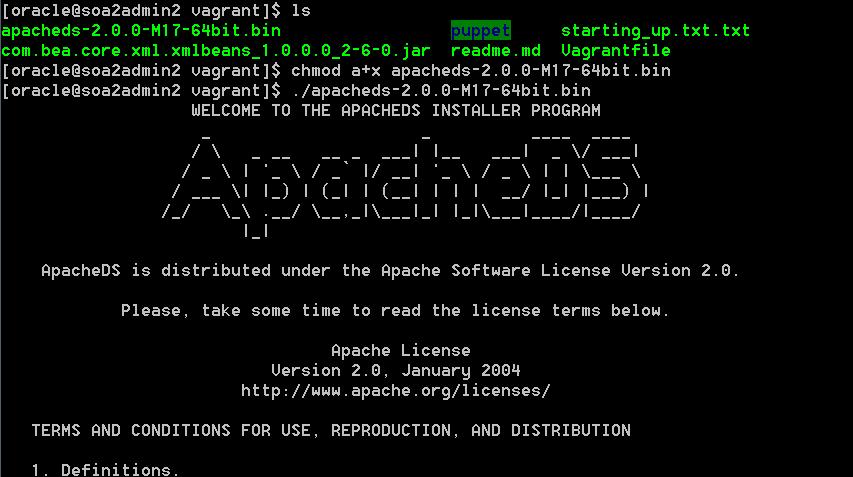
ApacheDS (Apache Directory Studio) is a leading directory tools platform that is LDAPv3 compliant (the latest LDAP version). It is the most common LDAP-based directory server on the market. ApacheDS is developed in Java and supports Kerberos 5 and the Change Password Protocol.
ApacheDS was designed to be easy to install, administer, and manage. The UI tools include an LDAP schema editor, an LDAP browser, an LDIF editor, an access control editor, and more.
#2. Open LDAP
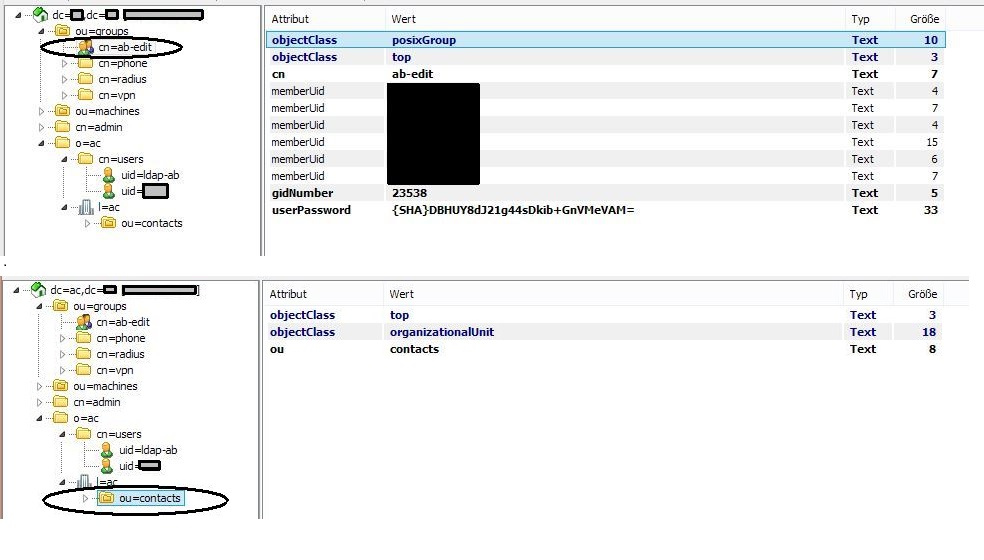
Open LDAP, often known as LDAP Admin, is a free and open-source Lightweight Directory Access Protocol (LDAP) program developed by the OpenLDAP project. It is a Windows LDAP client and management utility for LDAP databases. Open LDAP allows you to browse, search up, update, create, and remove objects from an LDAP server, making it one of the greatest alternatives to Microsoft Active Directory available for administrators.
This project also provides scheme browsing, password management, support for the binary attribute, export and import LDIF, and other features.
#3. Univention Corporate Server (UCS)
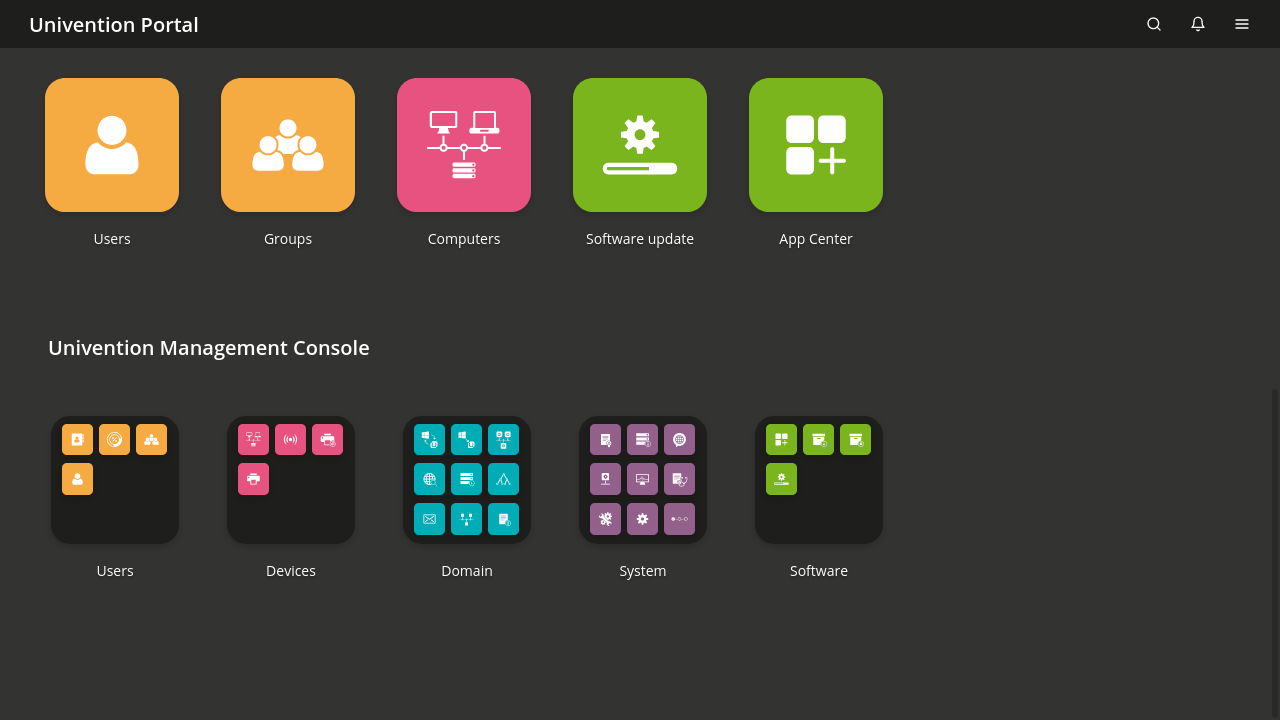
Univention Corporate Server is another Free Active Directory Alternative (Pros and Cons) (UCS). It is yet another free, open-source Linux-based directory application used in the UCS to manage servers, services, clients, users, and virtualized machines. Univention Corporate Server (UCS) has become one of the most popular Active Directory alternatives among users. Many individuals like the solution for managing virtualized IT infrastructures since it has a user-friendly interface and delivers timely security and feature upgrades. The tool includes a command line, scripting, and application program interfaces for automation and expansion.
#4. Lepide Auditor for Active Directory
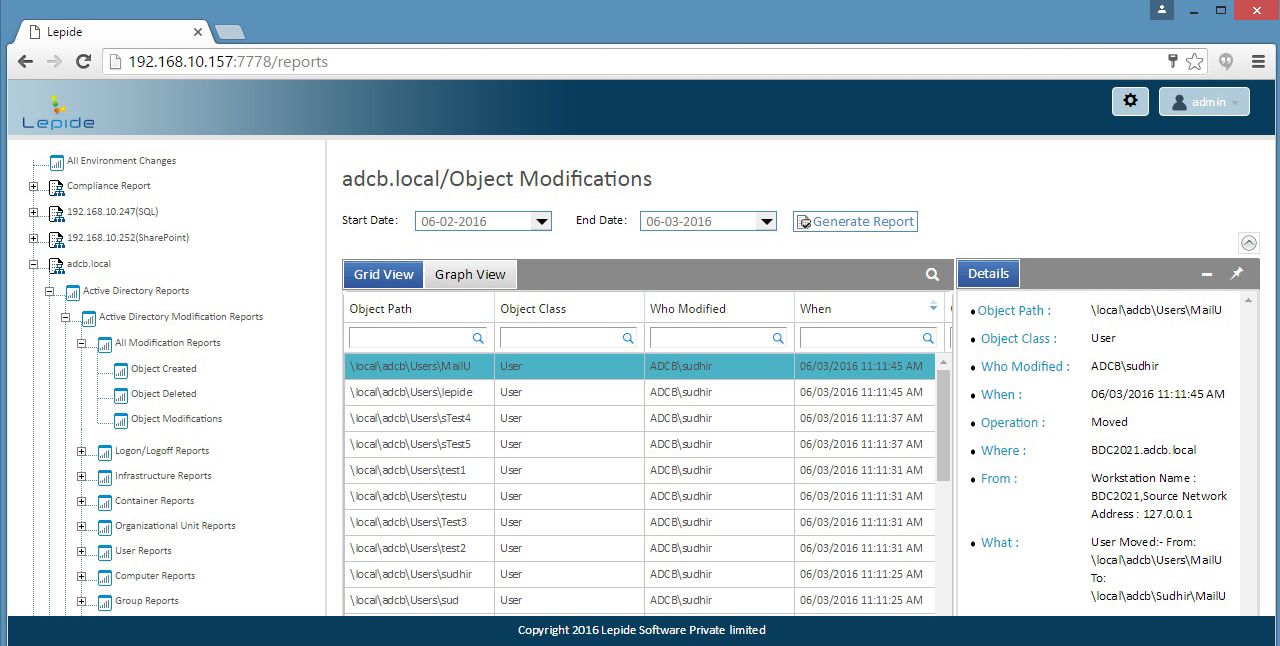
Control Active Directory modifications with the sophisticated program Lepide Auditor for Active Directory. It was created primarily to provide a tool for managing directory changes. It can track both types of changes and identify those that are undesirable. It allows you to immediately see who made the modifications, what changes were made, and when and where they were done. The finest element is that it allows system audits even when audit logs are not there.
Among its other capabilities are a control panel for all audited systems, customizable control panel displays, the ability to consolidate all audit logs into a single area, the ability to rapidly create a business perspective of who is making changes and what is being changed, and much more. It also warns you if it finds any major changes.
#5. Zentyal Active Directory
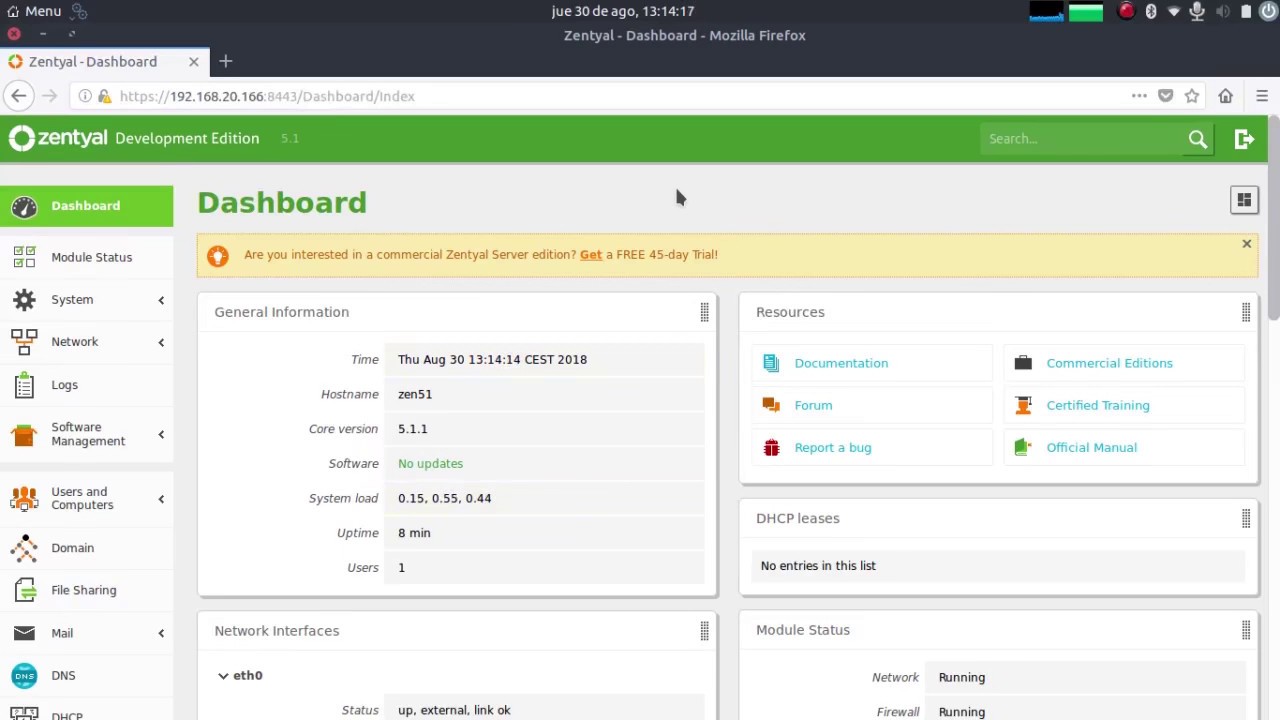
Zentyal is an Active Directory solution that is ideally suited for Linux users to manage IT infrastructure. It is a free, open-source email service introduced by Microsoft. Whether you operate Linux for small or medium-sized organizations or an office setting, Zentyal as directory service software is the best choice. For domains, the solution offers functionality like file sharing on Windows systems, single sign-on authentication, and more. It includes all network services, such as Directory & Domain Server, Mail Server, Gateway, and Infrastructure Server.
#6. JXplorer
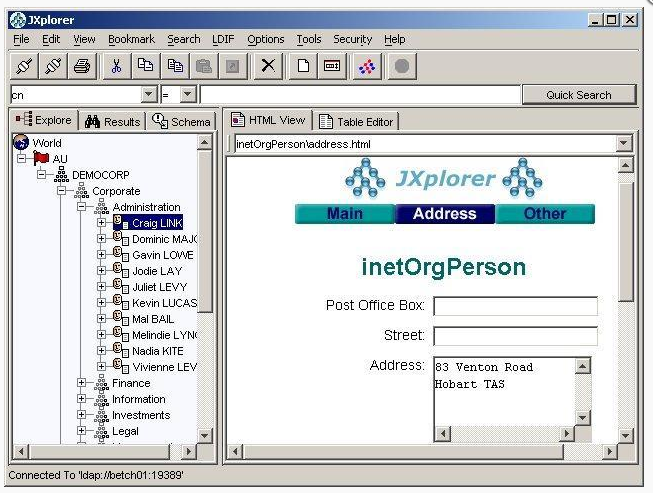
JXplorer is a free, open-source, multi-platform LDAP browser and editor designed by Computer Associates’ eTrust Directory development lab. It is a standard-compliant general-purpose LDAP client that can be used to look up, read, and modify any standard LDAP directory or X500 directory with a DSML interface. It is said to be incredibly adaptable and may be changed in a variety of ways.
The software is written in Java and has its build system and source code accessible in SVN or as a packaged build for anyone who wants to further examine or develop the application. JXplorer has reporting, regulatory, and security utilities.
#7. Samba
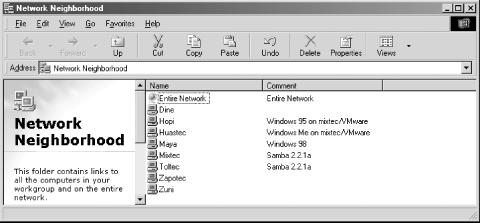
Samba is a free, simple-to-install, and secure Windows interoperability suite released under the GNU General Public License (GPL). It is yet another of the top 22 free Active Directory alternatives that work in two modes: domain controller and regular domain member. The utility, which was introduced in 1992, employs the SMB or CIFS protocol to offer stable, quick file and print services. The interface is comparable to that of an FTP application, and remote setup is possible via a web browser. It also allows you to create a database on a Unix platform and use it as a client on Windows.
#8. FreeIPA
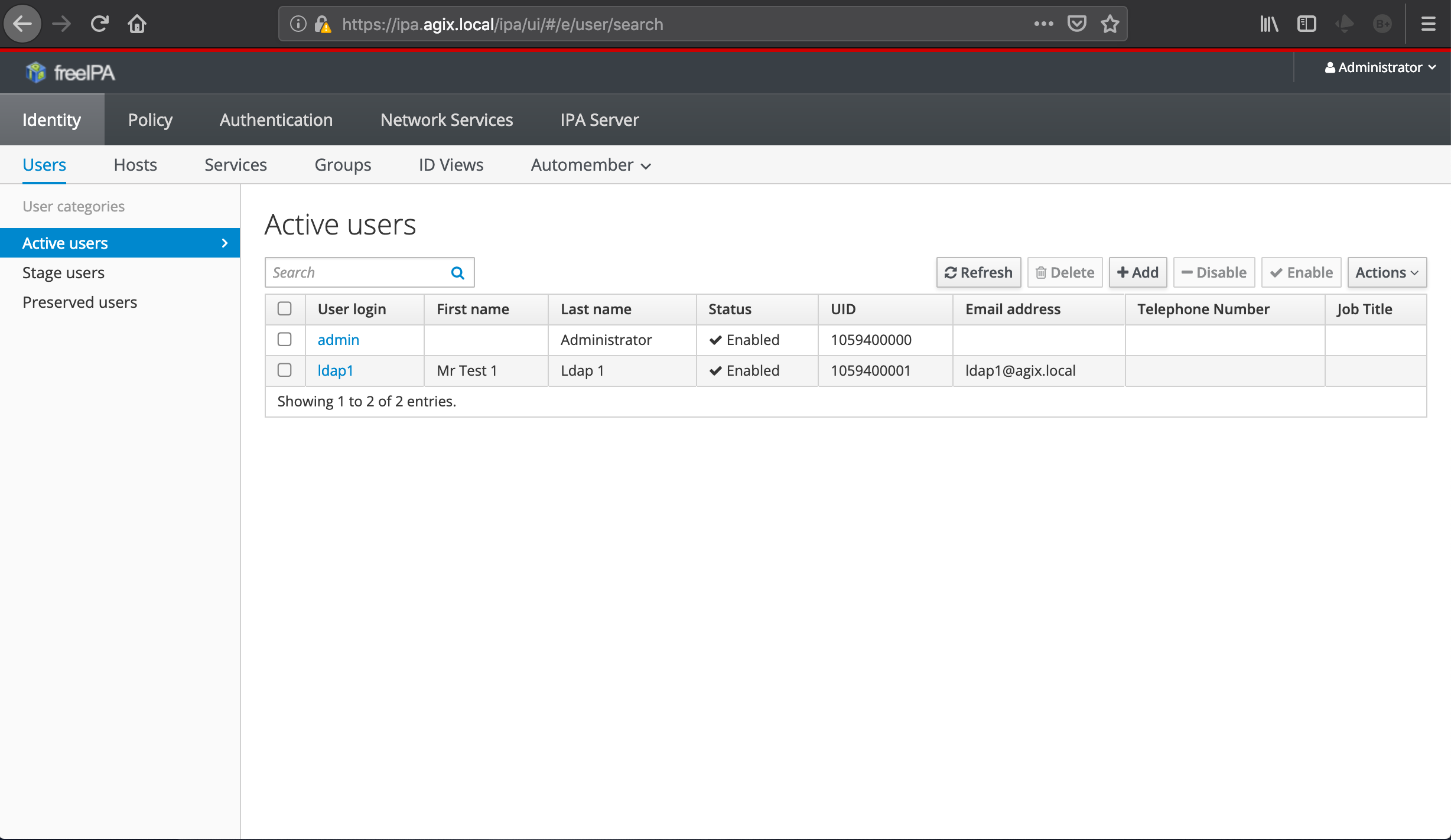
FreeIPA is one of Red Hat’s ambitious free and open-source initiatives that aim to provide identification, policies, and audit suites primarily for Linux and Unix computer networks. This project, which is currently included with RHEL 6.2, intends to adapt much of the functionality provided by Active Directory.
Among its many features are an integrated security information management solution that incorporates Linux, NTP, DNS, and more; is built with open source components and standard codes; has a strong emphasis on administration convenience and mechanization of installation and configuration functions; has complete multi-master duplication of elevated repetition and flexibility; and has expandable management interfaces such as XMLRPC, CLI, Web UI,
#9. JumpCloud

JumpCloud is a cloud directory platform as a service that unites devices, provides secure identity management, and is the best alternative to Microsoft’s Active Directory and LDAP. One of the early Directory as a Service applications The program is extremely simple to use and offers features such as single sign-on (SSO) and multi-factor authentication.
#10. OpenDJ
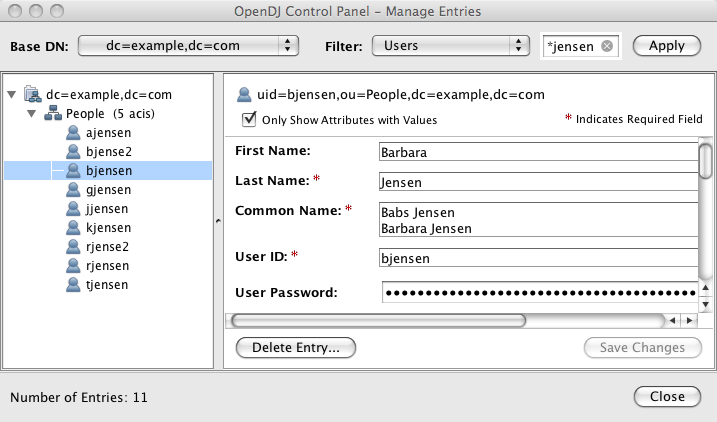
OpenDJ is a Java-based open-source directory server that is free, lightweight, and secure. It is one of the finest Active Directory alternatives, supporting LDAP v3 and DSML v2. The source code for OpenDJ was developed while working on Sun Microsystems’ OpenDS technology (the LDAP/DSML server is now managed by Oracle Corporation).
#11. eDirectory
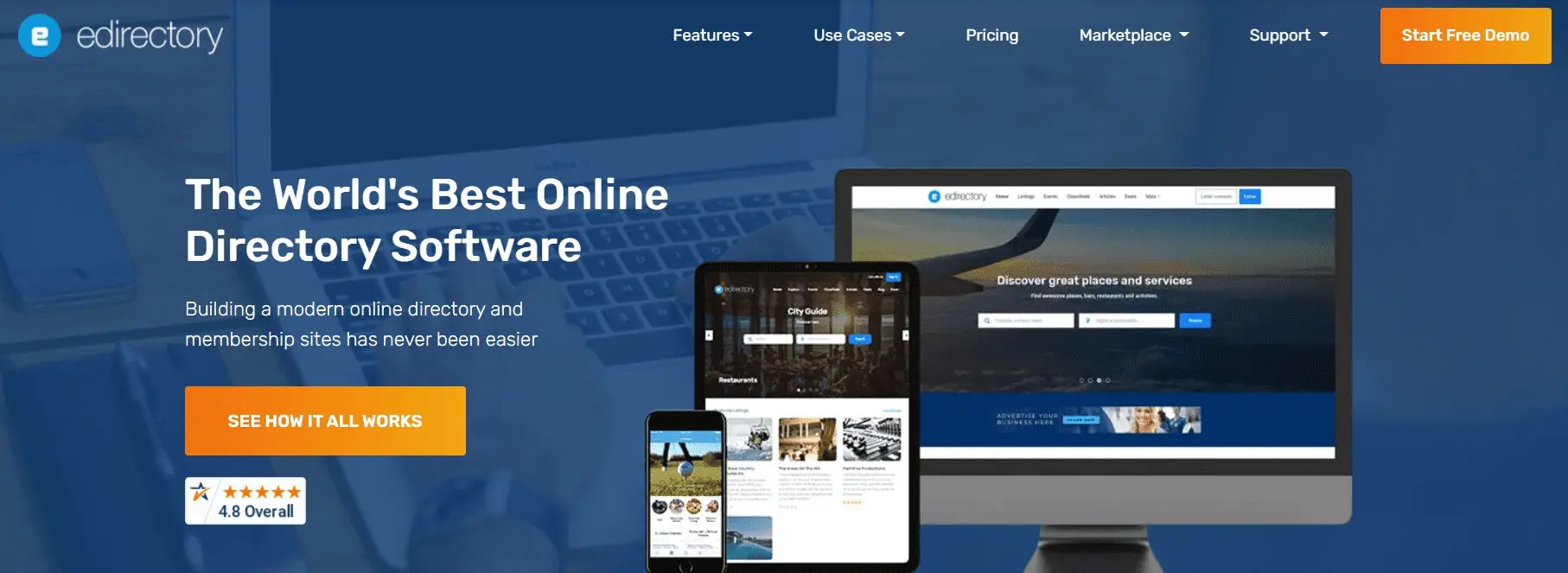
One of the most popular alternatives to Microsoft Active Directory is Novell’s eDirectory. It is an adaptation of Novell’s original project, the network operating system directory, which was created to serve the brand’s Netware environment. It subsequently grew into a high-performance, mission-critical component to support the growing importance of directory services in IT.
eDirectory is a popular directory with over 28K clients and the majority of Fortune 1000 companies utilizing the program. It is mostly used for large-scale distributions, and one of its unique qualities is its ability to scale. It has security features and supports SASL, DSML, LDAP, SOAP, and other security standards similar to Active Directory.
#12. Azure Active Directory

Azure Active Directory (Azure AD) is a Microsoft business cloud solution that aids in accessing and managing end-user identities. It includes both free and premium versions and is a great alternative to Active Directory. You may control Azure Cloud application access and sync it with on-premises Active Directory. The tool’s single sign-on (SSO) capability allows customers to sign up for various services from any place through the cloud. IT administrators, app developers, and Microsoft cloud service users frequently favor Azure Active Directory over other alternatives due to its superior functionality.
#13. 389 Directory Server
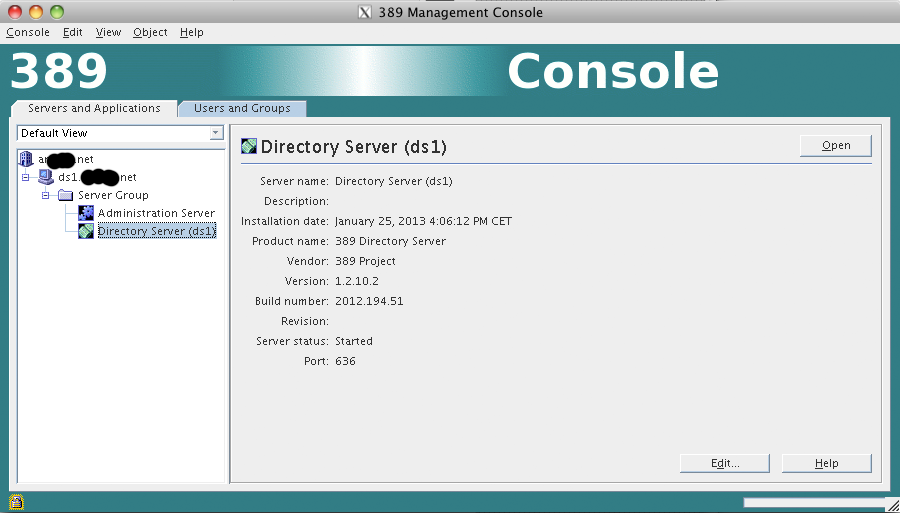
389 Directory Server is a feature-rich business-class open source and free LDAP server for the Linux platform that is an excellent alternative to Microsoft Active Directory. What’s remarkable about it is that it has been tested in the real world, facilitates multi-master replication, and already maintains many of the world’s largest LDAP deployments. The best aspect is that it is free to download and can be erected in under an hour using the graphical interface.
The LDAP server is a high-performance system that can handle millions of transactions per second and tens of thousands of concurrent users. It boasts an enormous directory that is only limited by disk space, offers great performance, ease of expansion, and multi-mater repetition, and can meet the most stringent requirements.
#14. Gluu Server
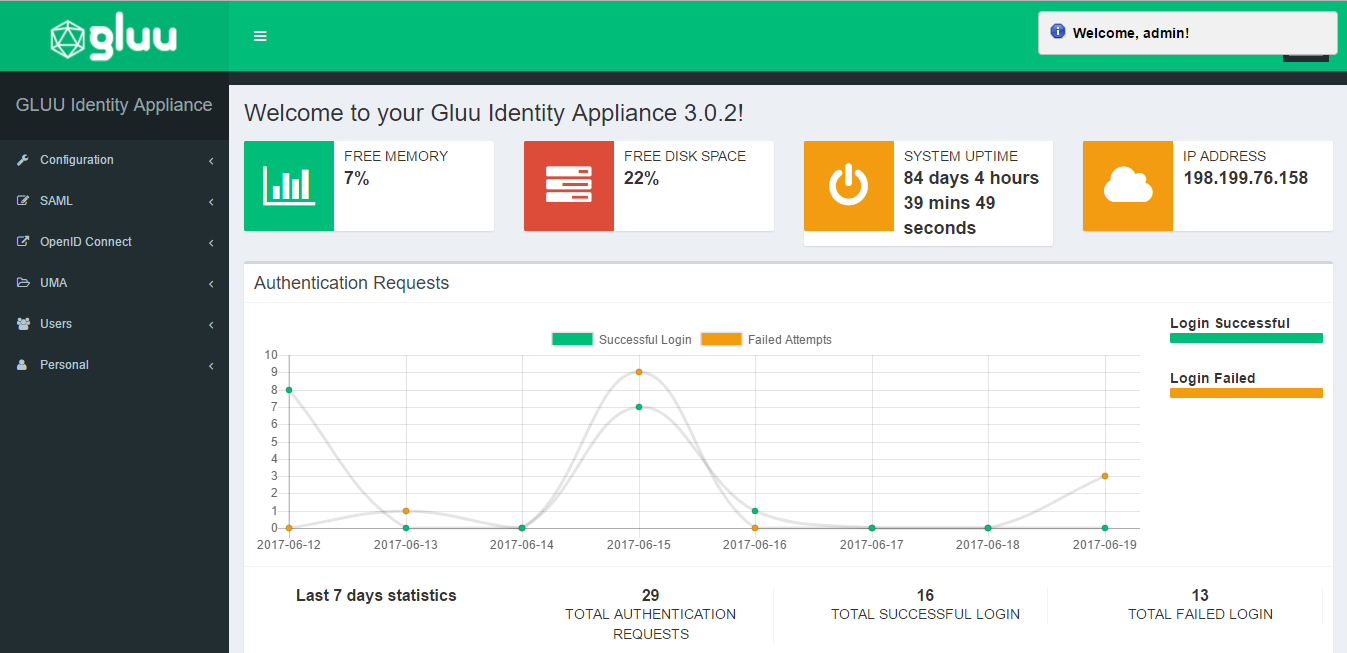
Gluu Server is a free, open-source solution for identity and access management. Another Free Active Directory Alternatives that may assist in protecting your data from cyber assaults and dangers It combines tough corporate needs with highly secure, simple implementation, and management directory services. The solution is adaptable, allowing you to create unique audit logs and apply complex authentication routines.
#15. Red Hat Directory Servers
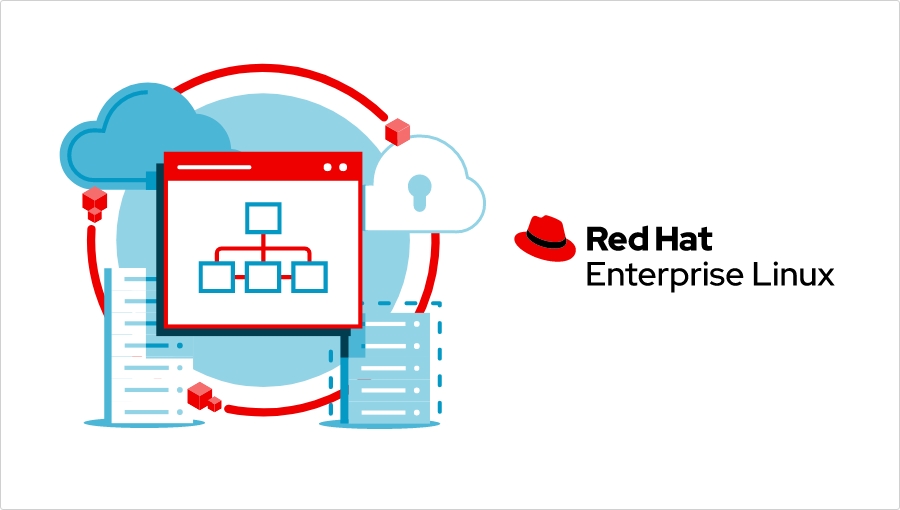
Red Hat Directory Server in a UNIX environment makes it simple to manage user access to many systems. In a UNIX context, providing locally stored information gets increasingly challenging as the number of users and systems increases. In this scenario, Red Hat Directory Server comes in useful since it allows you to store user information in its LDAP-based server, making the system expandable, safe, and convenient.
It provides data protection with restricted access to directory data, provides deep control based on user identity, role identity, domain name, group membership, and so on, provides a foundation for compelling certificate-based validation, allows you to access through various methods remotely or through validation procedures, and much more.
#16. FreeIPA
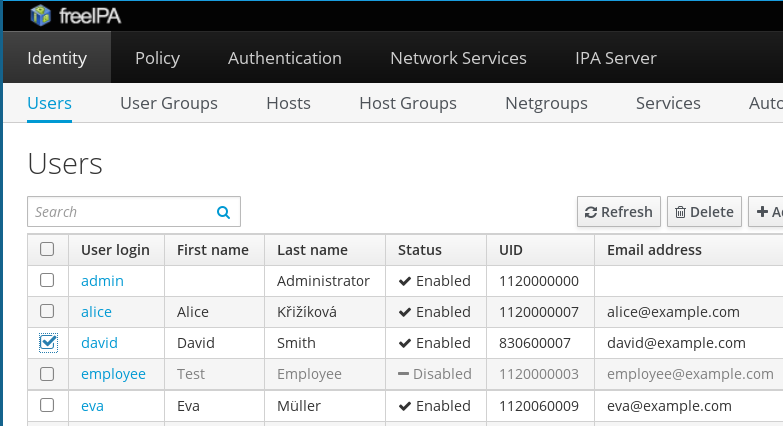
If you’re seeking the Best Free Active Directory Alternatives, look no further than FreeIPA. It is a free, open-source Active Directory solution for Linux-based network systems that manages user and client identities. The tool, which is powered by Red Hat OpenShift Online, provides a secure directory environment for all Linux users. In addition, the program employs a command-line interface to administer Linux users and client hosts from a single place. A FreeIPA server centralizes authentication, authorization, and account information by storing data on users, groups, hosts, and other items required to manage the security of a network of computers.
#17. RazDC
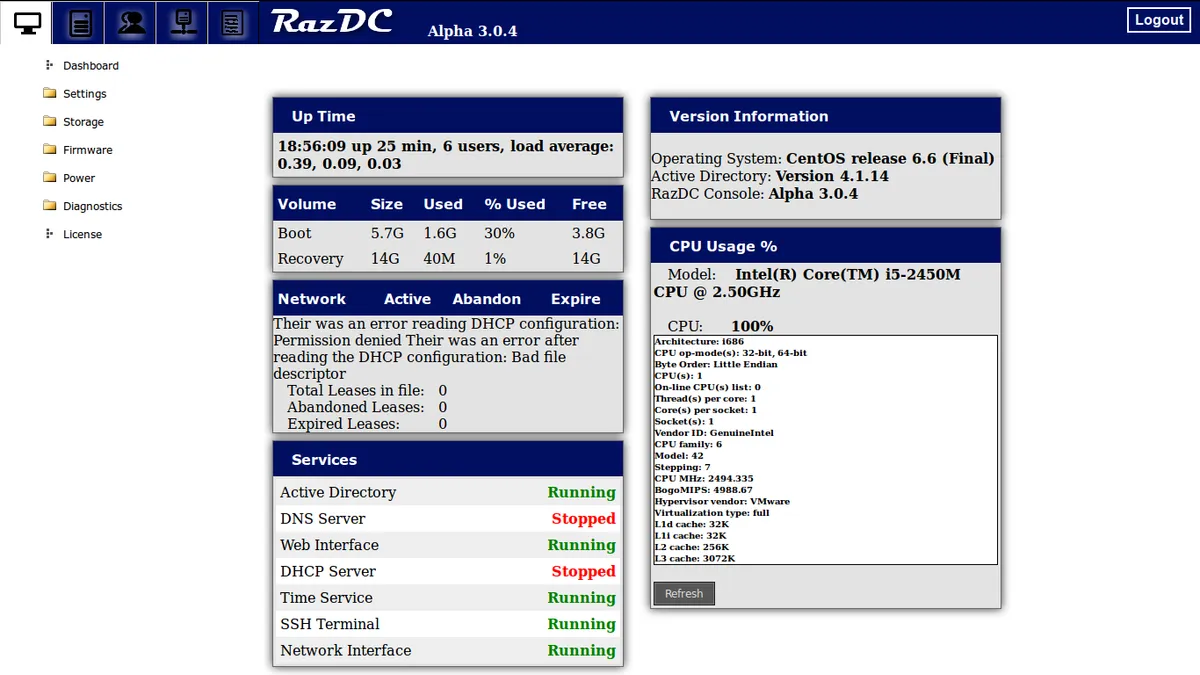
RazDC is a simple, free, and light program for Linux systems incorporating Active Directory functionality. The program is intended for any small business owners that require an alternative to Active Directory. It is also secure and requires minimal hardware.
#18. OpenAM
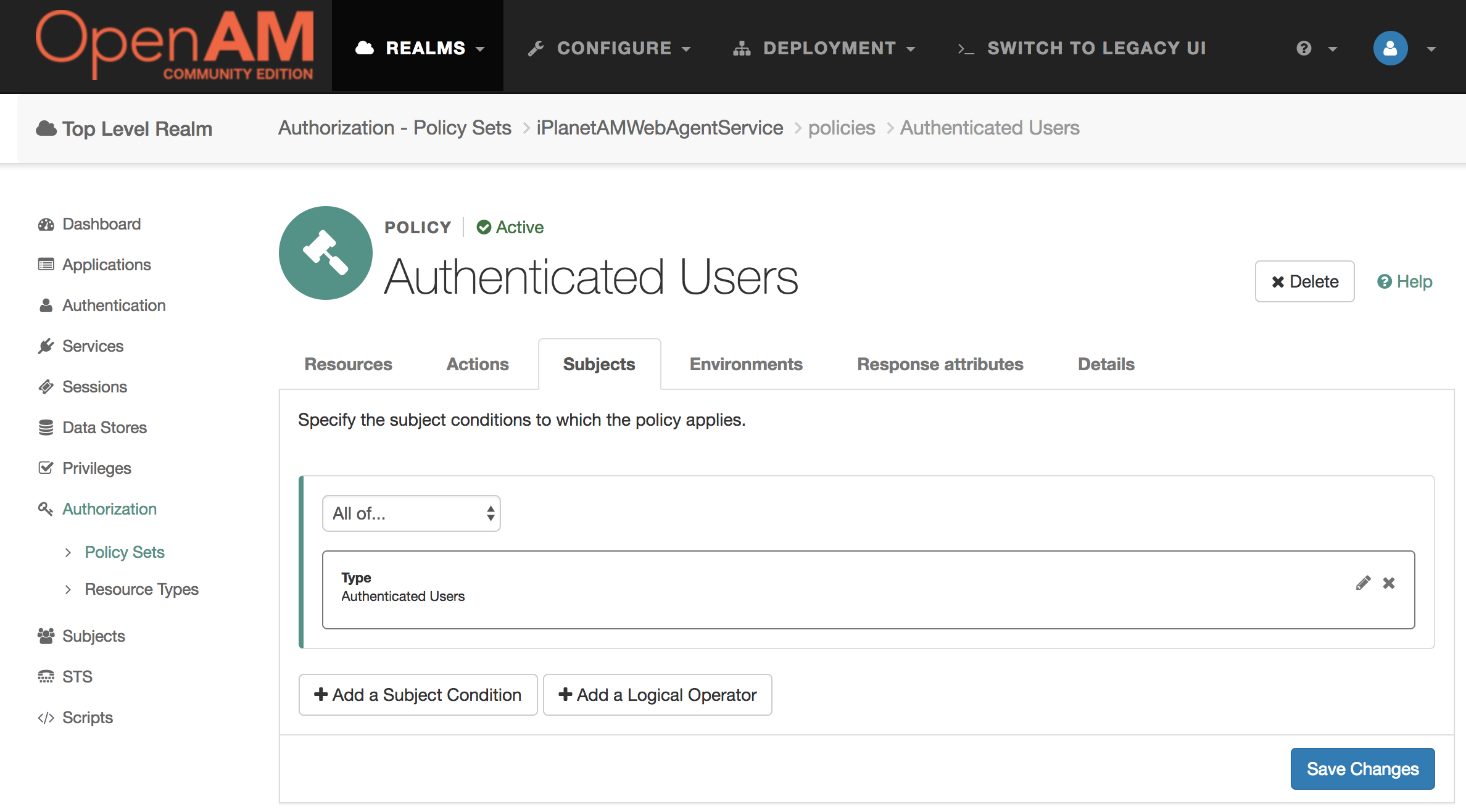
OpenAM stands for Open Access Management, an adaptable and highly scalable open-source project. The primary function of Open Access Management is to manage and provide rights for authentication, authorization, entitlements, SSO (Single Sign-On), federation, and web services security. It must include OpenDJ for configuration management. It also stores data on LDAP directory servers.
#19. OpenSSO
Open SSO (Single Sign-On) is an open source, cross-platform access control and federation server solution. In a single, self-contained application, it also provides web service security. Oracle Open SSO is designed with repeatable and extensible tasks for faster placement in numerous situations and creates aligned mashups from internal and associate applications and web services to develop a single view for the end user. It is enhanced for both internal web access control and extranet validation, offering secure and integrated access management within the business and beyond. It enables companies to quickly and affordably expand their business’s reach while maintaining strong security requirements.
#20. GLAuth
GLAuth stands for Go-lang LDAP Authentication, a free, simple, lightweight, and secure LDAP server. The server is an excellent substitute for OpenLDAP and Active Directory. It is fully featured, with configurable backends, centrally managed SSH keys, and two-factor authentication (2FA). Several accounts on various platforms, such as Linux servers and macOS, may be easily managed from a single site. Other apps supported by GLAuth include Jenkins Server, Graylog2, and the Apache web server.
#21. SME Server
SME Server by Koozali is an open source, comprehensive, secure, reliable, and capable Linux server distribution aimed at small to medium-sized organizations. It is based on solid CentOS/Redhat sources and is provided to you by a large, active, and skilled community that has been providing improvements, plugins, and support since 2007. It is a free program with certain unique characteristics that make it a particularly secure, stable, and easy-to-use server platform. It is designed to be simple to build and use, safe and reliable to operate, multi-platform, and expandable to meet future needs.
Koozali SME Server is amazingly reliable and simple to use, and it can be setup and configured in less than 20 minutes. The best part is that it is still driven by a secure and open Linux system that can be completely updated and modified.
#22. Resara Server
Resara Server is an open-source server designed for small enterprises and compatible with Active Directory. This project is free and based on Samba 4. It is designed to be uncomplicated and simple to use. Users can be managed, files may be shared, and DHCP and DNS can be configured using the control panel. It combines all of the elements, gives a nice graphical user interface, and includes enough documentation.
The free version of Resara Server includes user administration, file sharing, an active directory-style domain controller, automated disk mapping for Windows clients, and network host management.
FAQs
Can Okta replace Active Directory?
Sadly, Okta cannot completely replace Active Directory. This is due to the fact that AD acts as the identity provider for Windows computers, apps, file servers, and networks. Okta then federates users to web apps using their AD IDs.
Can I use Active Directory for free?
There are four different editions of Azure Active Directory: Free, Office 365 applications, Premium P1, and Premium P2. The free version is offered with a subscription to a commercial online service, like Azure, Dynamics 365, Intune, or Power Platform.
What is the Linux equivalent of Active Directory?
AD was not designed to work with Linux and Mac, web-based apps, or the cloud. The two greatest alternatives to Active Directory for Linux and Mac are LDAP and RADIUS.

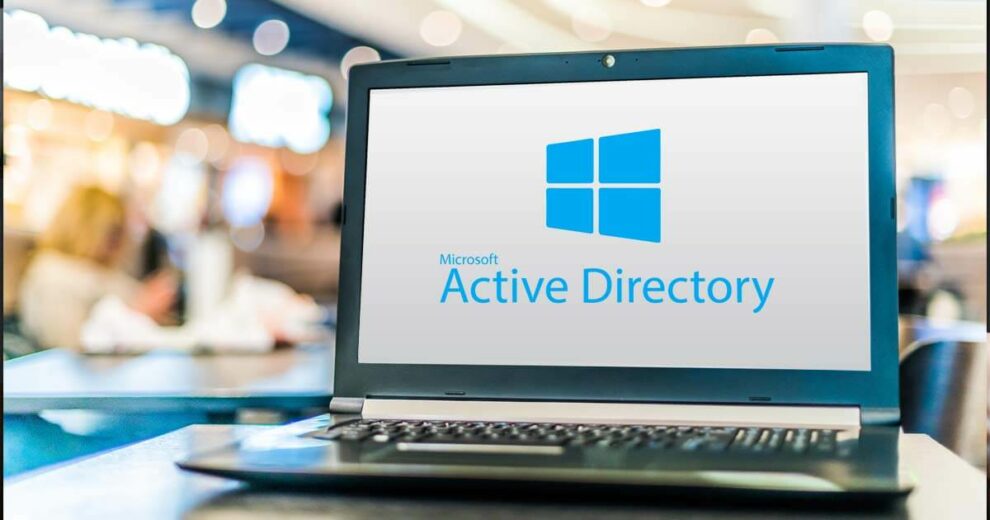








Add Comment